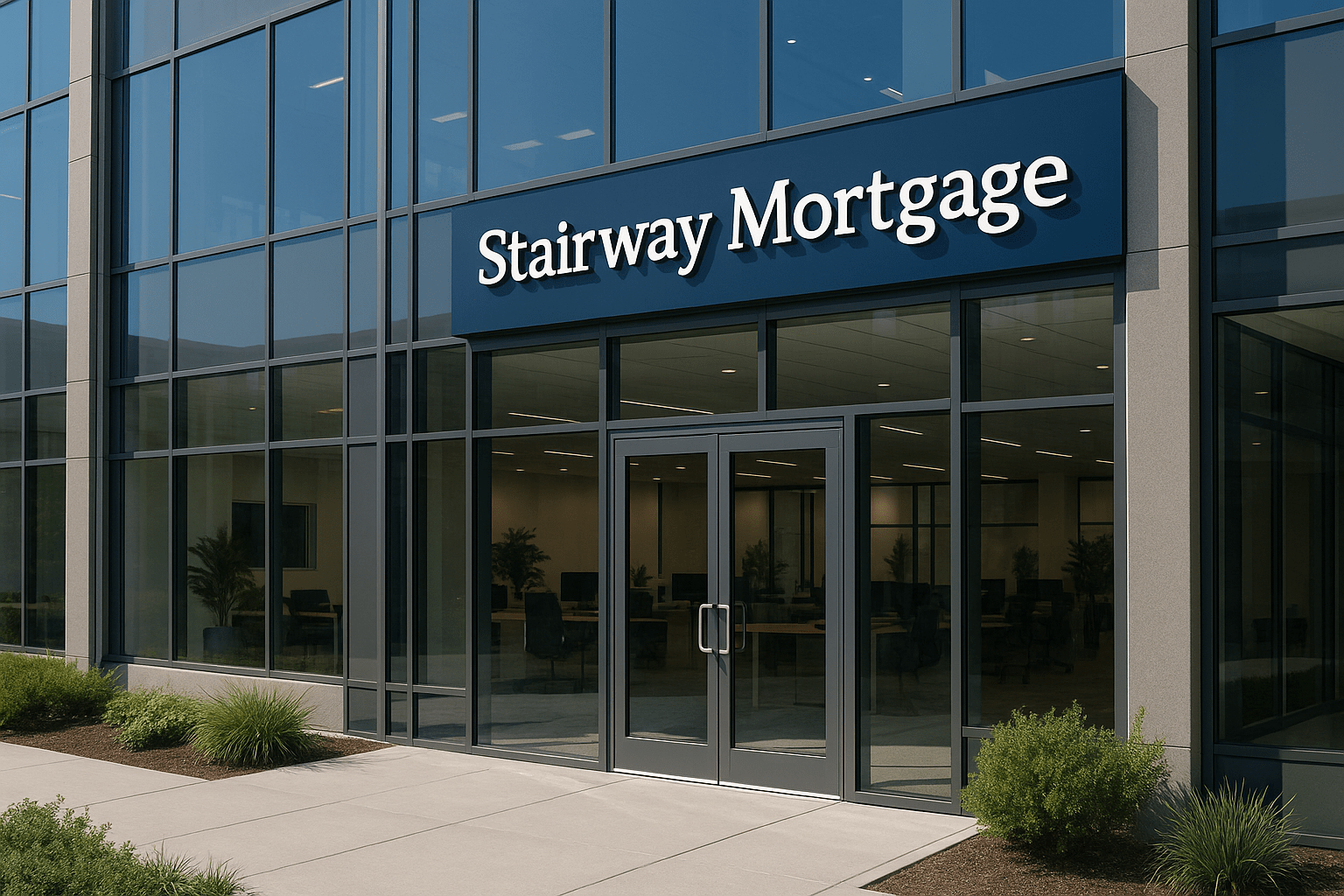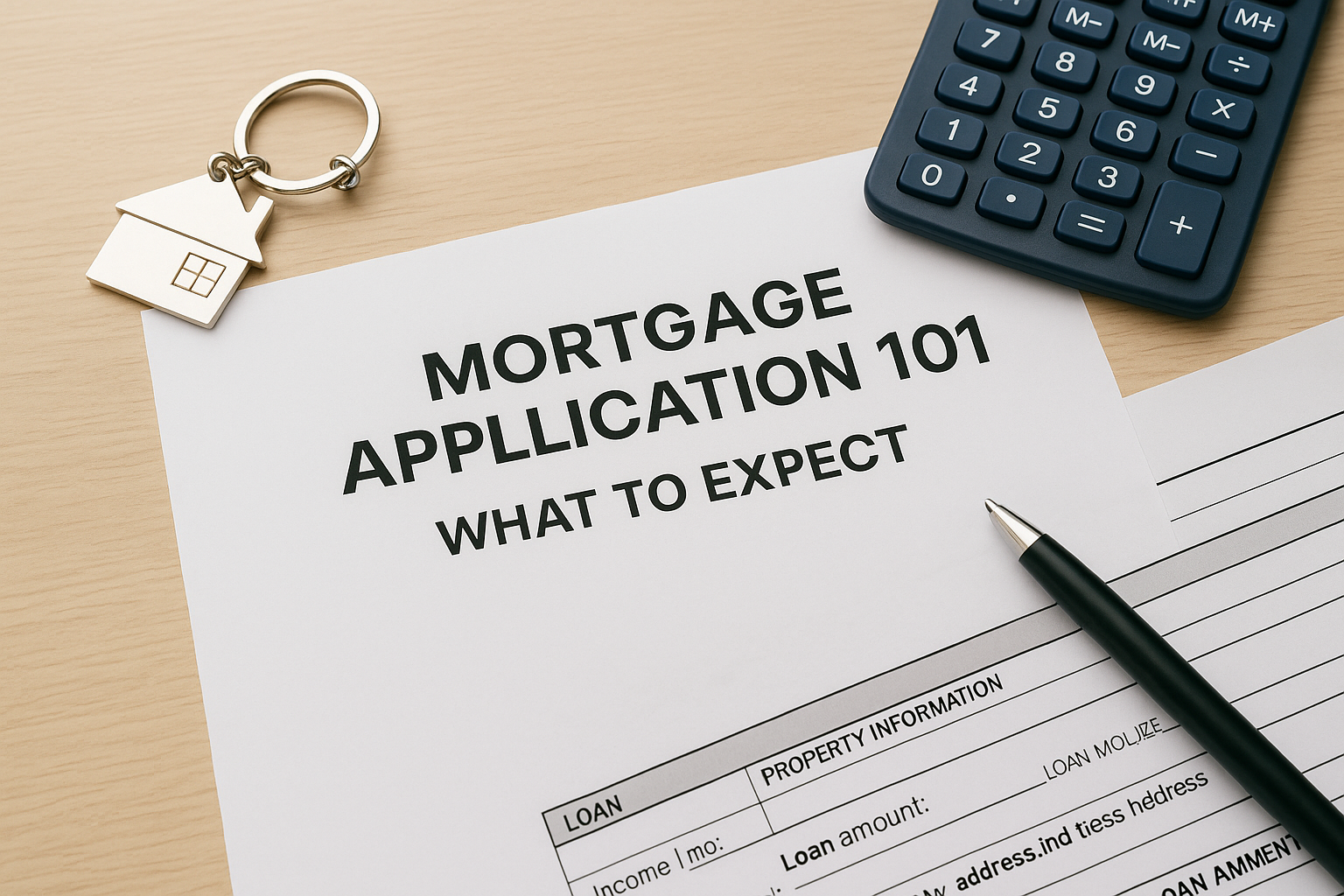
Real Estate Investing for Beginners: Why Your First Property Beats the Stock Market
Real Estate Investing for Beginners: Why Your First Property Beats the Stock Market

Purchasing an Investment Property: Your Foundation for Building Wealth Through Real Estate
The stock market gets all the attention, but real estate investing for beginners offers advantages Wall Street can’t match. While your 401(k) grows slowly over decades, your first rental property can generate monthly income, reduce your taxes, and build equity—all at the same time.
Most first-time investors don’t realize that buying an investment property isn’t reserved for the wealthy. You can start with less capital than you think, and the returns often exceed traditional investments within the first few years.
In this guide, you’ll discover:
- How real estate’s five profit centers work together to accelerate wealth building (according to IRS tax code)
- Why leverage multiplies your returns in ways stocks never can (following standard lending practices)
- The realistic timeline for building wealth through rental properties
- Common myths that stop beginners from taking action
- First steps to purchase your rental property this year
Whether you’re exploring real estate investment strategies for the first time or ready to move from theory to action, this guide shows you why your first property could be the smartest financial move you’ll ever make.
Ready to explore your financing options? Schedule a call with a loan advisor who specializes in investment property financing.
What Is Real Estate Investing and Who Should Consider It?
Real estate investing means buying property to generate income or build wealth over time. Unlike buying a home to live in, when you invest in rental property, you’re running a business that produces monthly cash flow while the property appreciates.
The core concept is simple: You buy a property, rent it to tenants who pay you monthly, and that rent covers your mortgage cost plus expenses—with money left over as profit. Meanwhile, you benefit from tax advantages, your tenants gradually pay down your mortgage balance, and the property typically increases in value.
Real estate investing takes several forms:
Single-family rentals are houses you rent to one family at a time. They’re the most common starting point for beginners because they’re familiar and financing is straightforward.
Small multifamily properties (2-4 units) let you house hack—live in one unit while renting the others. This strategy helps first-time investors qualify for owner-occupied financing with lower initial investment requirements while generating rental income from day one.
Who should consider buying their first rental property? You’re an ideal candidate if you have stable income, decent credit, some savings for initial capital and reserves, and the willingness to learn landlord basics. You don’t need to be wealthy or have perfect credit—you just need to start.
The FHA loan program lets qualified buyers purchase investment properties with reduced initial capital requirements, making real estate investing accessible to people who couldn’t traditionally afford it.

The 5 Profit Centers: Why Real Estate Beats Stocks
Here’s where real estate investing for beginners gets exciting. When you buy stocks, you profit two ways: dividends and appreciation. When you purchase rental property, you profit five ways simultaneously.
1. Cash Flow: Monthly Income While You Sleep
Your tenants pay rent every month. After covering the mortgage cost, property taxes, insurance, maintenance, and other expenses, you keep what’s left. This monthly cash flow is real money you can spend, save, or reinvest.
Even modest cash flow compounds significantly over time. If your property generates positive monthly cash flow, you’re getting paid to own an appreciating asset.
2. Appreciation: Your Property Value Increases
Real estate typically appreciates over time. The national average is around moderate growth annually, though this varies by market. On a property purchased at a substantial price point, even modest annual appreciation creates significant equity growth.
Unlike stocks that can crash overnight, real estate appreciation tends to be more stable and predictable over longer time horizons.
3. Mortgage Paydown: Your Tenants Build Your Equity
Every month, part of your mortgage cost goes toward the principal balance. Your tenants are essentially buying the property for you. This forced savings builds equity automatically.
In the early years, most of your mortgage cost goes toward interest. But over time, more goes toward principal. After holding a property for many years with a standard mortgage, your tenants will have paid off a substantial portion of your loan.
4. Tax Benefits: Keep More of What You Earn
Real estate offers tax advantages stocks can’t match. You can deduct mortgage interest, property taxes, insurance, repairs, maintenance, property management fees, and more. The biggest benefit is depreciation—a paper loss that reduces your taxable income even when you’re profitable.
The IRS lets you depreciate rental property over 27.5 years, creating substantial annual deductions. For a property at a typical price point, you might deduct a significant amount each year without spending any actual money.
Use the rental property calculator to see how tax benefits boost your real returns.
5. Leverage: Control Large Assets With Small Capital
This is where real estate investing truly outperforms stocks. You can buy rental property with a fraction of the purchase price as your initial investment. With an owner-occupied investment property, you might put down a smaller percentage and control the entire asset.
If the property appreciates, you earn returns on the full value—not just your initial investment. This amplifies your returns dramatically compared to stocks where you must pay full price upfront.
Example of leverage power: You invest modest initial capital on a property. If the property appreciates by a reasonable percentage, you’ve doubled your initial investment—while also collecting rent, building equity through mortgage paydown, and enjoying tax benefits.
See how this works in practice in this FHA loan case study showing a first-time investor’s complete first-year numbers.
How Leverage Multiplies Your Returns (Unlike Stocks)
Let’s compare investing in stocks versus purchasing an investment property to understand leverage’s power.
Stock market investment: You have available capital to invest. You buy stocks. If they appreciate by a typical annual percentage, you earn a reasonable return on your money. That’s your gain.
Real estate investment: You use that same capital as initial investment on a rental property at a substantial price point. You now control an asset worth much more than your initial capital.
If the property appreciates by the same percentage as stocks, your equity grows substantially—but your return on your actual cash invested is much higher because you controlled a larger asset. You’re earning returns on the bank’s money, not just yours.
Plus, you’re also getting:
- Monthly cash flow from rent
- Mortgage paydown from tenants
- Tax deductions reducing your overall tax burden
- More appreciation potential through strategic improvements
The conventional loan program offers competitive financing for investment properties, though it typically requires larger initial investments than owner-occupied options.
Why stocks can’t offer leverage: You can’t borrow multiple times your capital to buy stocks at reasonable interest rates. Margin trading exists, but it’s risky and expensive. Real estate leverage is built into the system through mortgages at favorable rates.

Tax Advantages That Stocks Can’t Touch
Real estate investing for beginners offers tax benefits that make it one of the most tax-advantaged investments available.
Depreciation: Your biggest tax advantage. The IRS considers your rental property a depreciating asset, even though it’s actually appreciating. You can deduct a portion of the property’s value each year as depreciation expense, reducing your taxable income without spending any money.
This “phantom loss” often turns your profitable rental property into a tax loss on paper, offsetting your rental income and sometimes other income too. Over the standard depreciation period, you’ll deduct a substantial portion of your property’s value.
Operational deductions stack up fast:
- Mortgage interest (often your largest expense)
- Property taxes
- Insurance premiums
- Repairs and maintenance
- Property management fees
- Utilities you pay
- HOA fees
- Advertising for tenants
- Professional services (CPA, attorney)
- Mileage driving to/from property
Unlike personal homeowners who face strict limits on deductions, when you invest in rental property, these expenses reduce your taxable income dollar for dollar.
The 1031 exchange: When you eventually sell, you can defer capital gains taxes by exchanging into another investment property. This lets you keep building wealth without losing a chunk to taxes. Learn more about 1031 exchange strategies and how they preserve your wealth as you scale.
Use the DSCR loan calculator to estimate cash flow after tax benefits on your next investment property.
Multiple Income Streams Working Simultaneously
When you purchase rental property, you’re not choosing between different profit sources—you get all of them at once.
Month 1: Your tenant moves in and pays rent. You collect cash flow after expenses, your mortgage balance decreases slightly through principal paydown, you can claim depreciation and other deductions at tax time, and the property is (hopefully) appreciating.
Year 1: You’ve collected months of positive cash flow, built equity through mortgage paydown, created paper losses through depreciation that offset your taxable income, and the property has likely increased in value.
Year 5: You’ve accumulated significant cash flow over time, your mortgage balance is notably lower, you’ve claimed substantial tax deductions, and the property value has grown significantly—all while using mostly your tenants’ money to pay for it.
This compounding effect is unique to real estate. Your stock portfolio doesn’t pay your bills. Your 401(k) doesn’t reduce your taxes today. Your savings account doesn’t use other people’s money to buy you an appreciating asset.
Real estate investment strategies work because all five profit centers compound together over time. A property that barely cash flows in year one becomes a cash-flowing machine after years of rent increases, mortgage paydown, and appreciation.
Realistic Timeline: First Year, Five Years, Ten Years
Setting proper expectations is crucial for first-time investors. Real estate builds wealth, but it’s not a get-rich-quick scheme.
First year expectations: Your main goal is learning the business and achieving stability. You’ll probably see modest monthly cash flow (if any), minimal appreciation, and some tax benefits. Your biggest win is getting started and learning to manage a property.
Don’t expect your first property to replace your job income immediately. You’re building a foundation. Many first-year investors break even or see modest returns—and that’s perfectly fine. You’re gaining equity, building credit through on-time mortgage costs paid, and learning valuable skills.
Five-year outlook: Now things get interesting. You’ve collected years of rent increases, your mortgage balance has decreased meaningfully, your property has appreciated, and you’ve claimed substantial tax deductions. The cash flow that was tight in year one is now comfortable.
More importantly, you’ve built enough equity to potentially refinance or tap home equity for a second property. This is when your wealth-building accelerates. The cash-out refinance strategy lets you extract equity to fund additional investments.
Ten-year vision: A decade from now, your first property could be worth substantially more than you paid. Your mortgage balance is considerably lower. Rent increases have boosted your cash flow significantly. The property might be generating enough monthly income to cover a car note or more.
The real wealth comes from scaling. Investors who buy one property and wait often miss the opportunity. Those who leverage their first property’s equity to buy properties two, three, and four see exponential wealth growth.
Check out this rental property case study showing a first-time investor’s complete ten-year journey from one property to a portfolio.

Common Myths That Stop First-Time Investors
Myth 1: “I need perfect credit to invest in rental property.”
False. While better credit helps, you don’t need perfect scores. Many loan programs work with first-time investors who have moderate credit. The FHA loan program is particularly accessible for buyers without pristine credit.
Myth 2: “I need huge initial capital I don’t have.”
Not necessarily. Owner-occupied investment properties (like house hacking a duplex) can be purchased with reduced initial investment requirements. Even non-owner-occupied investment properties can be bought with moderate initial capital using conventional financing.
Myth 3: “Being a landlord is a nightmare of midnight toilet calls.”
Only if you let it be. Modern property management is systematized. You can hire property managers, set boundaries with tenants, and use technology to handle maintenance requests. Many successful investors never touch a wrench.
Myth 4: “Real estate is too risky—what if I can’t find tenants?”
All investments carry risk, but real estate risk can be managed. Buy in areas with strong rental demand, screen tenants carefully, maintain adequate reserves, and price competitively. The biggest risk is often not starting at all and missing years of wealth building.
Myth 5: “I missed the boat—real estate is too expensive now.”
People said this 10 years ago. They’ll say it 10 years from now. There’s never a “perfect” time. Good deals exist in every market for investors who know how to find them. The best time to start was yesterday. The second best time is today.
Myth 6: “I don’t know enough about real estate to start.”
You’ll never know everything before you start. The learning happens by doing. You don’t need to be an expert—you need to be willing to learn, ask questions, and build a team of professionals who fill your knowledge gaps.
Who Should Buy Their First Rental Property Now?
You’re ready to invest in rental property if:
You have stable income and employment. Lenders want to see you can handle the mortgage cost even during vacancies. Consistent income proves reliability.
You’ve built decent credit. You don’t need perfect credit, but responsible credit management shows you can handle debt responsibly.
You have savings for initial investment and reserves. Beyond the initial capital, you need emergency reserves for unexpected repairs and vacancy periods. Having adequate reserves is crucial for surviving the learning curve.
You’re willing to educate yourself. Read books, take courses, join local real estate investor associations, listen to podcasts. Education drastically reduces your risk.
You can commit to the long-term. Real estate builds wealth over years, not months. If you might need to sell within a year or two, wait until your situation stabilizes.
You should probably wait if:
Your job is unstable or you’re planning major life changes soon. Buying rental property adds responsibility. Make sure your foundation is solid first.
You have significant high-interest debt. Pay off credit cards and personal loans first. The returns from real estate won’t outpace high-interest debt.
You can’t handle stress or uncertainty. Real estate investing involves problem-solving, dealing with tenants, and managing unexpected repairs. If these sound unbearable, reconsider whether rental property investing suits your personality.
You have zero emergency savings. Build a financial cushion before taking on investment property risk. You need reserves for your personal life and your rental property.
First Actionable Steps to Take This Week
Ready to start purchasing an investment property? Here’s what to do immediately:
Step 1: Educate yourself this week. Read at least three articles about real estate investing for beginners. Listen to podcasts during your commute. Join BiggerPockets (free) and read forum discussions. Knowledge reduces fear and improves decision-making.
Step 2: Check your credit and finances. Pull your credit reports from all three bureaus. Review your debt-to-income ratio. Calculate how much you could save for initial investment over the next 6-12 months. Understanding your starting point helps you set realistic timelines.
Step 3: Research your local market. Look at rental property listings in your area. What do single-family homes and small multifamily properties cost? Check Zillow, Redfin, and Craigslist for rental rates. Start understanding the numbers.
Step 4: Calculate example deals. Pick three properties currently for sale and estimate the numbers. What would the mortgage cost be? What could you charge for rent? What are your estimated expenses? Even rough calculations teach you what makes a good deal.
Use the FHA loan calculator to run numbers on properties that interest you.
Step 5: Connect with a lender specializing in investment properties. Understanding your borrowing power helps you shop realistically. Learn which loan programs work for your situation and what documentation you’ll need.
Step 6: Find a real estate agent who works with investors. Not all agents understand investment property. Find someone who can run rental comps, understands cap rates and cash flow, and works with investors regularly.

Owner-occupied investment property (house hacking): If you’re willing to live in one unit of a small multifamily property (2-4 units), you qualify for owner-occupied financing. This means reduced initial investment requirements with FHA loans and access to conventional loans with moderate initial capital needs.
You live in one unit and rent the others. The rental income helps you qualify for the loan and often covers most or all of your mortgage cost. This strategy helps first-time investors break into real estate with limited capital.
The FHA loan program is particularly popular for house hacking because it offers accessible financing for properties up to four units when you occupy one.
Non-owner-occupied investment property: If you’re buying a property you won’t live in, you need investment property financing. This typically requires larger initial investments (often at least a moderate percentage of purchase price) and slightly higher interest rates than owner-occupied loans.
Conventional loans are the standard for non-owner-occupied investment properties. You’ll need decent credit, provable income, and adequate reserves. The conventional loan page explains qualification requirements.
Alternative financing for investors: As you build your portfolio, additional financing options become available. DSCR loans qualify you based on the property’s rental income rather than your personal income—perfect for self-employed investors or those with multiple properties.
Bank statement loans and asset-based loans serve investors who don’t fit traditional lending boxes.
The key to financing success: Start building your relationship with an investment property lender now, even if you’re months away from buying. Understanding your options and borrowing power helps you shop confidently and move quickly when you find the right deal.
How Stairway Mortgage Helps First-Time Investors
Real estate investing for beginners doesn’t mean navigating financing alone. At Stairway Mortgage, we specialize in helping first-time investors understand their options and find financing that supports their wealth-building goals.
We work with investors at every stage. Whether you’re house hacking your first duplex with an FHA loan or buying your second rental property with conventional financing, we match you with loan programs that fit your situation.
Our approach is educational first. We explain how different loan programs work, what documentation you’ll need, and how to position yourself for approval. We want you to understand your financing, not just sign papers.
We offer multiple investment property loan programs:
- FHA loans for owner-occupied small multifamily properties
- Conventional loans for investment properties
- DSCR loans for portfolio builders who don’t fit traditional income documentation
- Bank statement loans for self-employed investors
- Portfolio loans for unique situations
Our team understands real estate investors’ needs. We know you’re evaluating deals based on cash flow and returns. We can help you run numbers and understand how different financing options affect your bottom line.
Ready to Start Building Wealth Through Real Estate?
Buying an investment property might be the smartest financial move you’ll make. While your friends watch their 401(k)s fluctuate, you’ll collect monthly rent checks, reduce your taxes, and build equity through appreciation and mortgage paydown.
Real estate investing for beginners starts with a single property. You don’t need to be wealthy or know everything—you just need to start.
The path forward is clearer than you think:
This month: Educate yourself and check your financing options Next quarter: Get pre-approved and start looking at properties This year: Close on your first investment property Five years from now: Own multiple properties building long-term wealth
Take the next step: Get pre-approved to understand your borrowing power, or schedule a call with a loan advisor who specializes in investment property financing.
Your first rental property is waiting. The question isn’t whether to invest in rental property—it’s when you’ll start.
Frequently Asked Questions
How much money do I need to start real estate investing?
For owner-occupied investment properties like house hacking a small multifamily, you might start with modest initial capital using an FHA loan. Non-owner-occupied investment properties typically require larger initial investments. Beyond the initial capital, budget for closing costs, repairs, and reserves for unexpected expenses. Total cash needed varies by market and property, but many first-time investors start with moderate capital through house hacking strategies.
Can I invest in rental property with bad credit?
Credit requirements vary by loan program. FHA loans work with borrowers who have moderate credit scores if other aspects of their application are strong. Conventional investment property loans typically require better credit. Focus on improving your credit score before applying, or consider starting with house hacking using FHA financing which is more accessible. A loan advisor can review your specific situation and recommend the best path forward.
Should I buy a single-family home or small multifamily property first?
For first-time investors willing to house hack, small multifamily properties (2-4 units) offer more upside. You can live in one unit and rent the others, using rental income to help cover your mortgage cost while building equity. If you’re buying a property you won’t occupy, single-family homes are simpler to manage and finance, making them solid first investments. Consider your goals, available capital, and willingness to manage multiple tenants when deciding. The rental property calculator can help you compare options.
How do I find my first investment property?
Start by researching your local market for areas with strong rental demand and reasonable prices. Work with a real estate agent experienced in investment properties who can identify potential deals and run rental comps. Look for properties below market value that need cosmetic work but are structurally sound. Join local real estate investor groups to network and find off-market opportunities. Online platforms like Zillow, Redfin, and local MLS sites help you understand market pricing. The key is analyzing many properties to recognize good deals when they appear.
What if I can’t find tenants or they stop paying rent?
Vacancy and non-payment are real risks you manage through proper planning. Buy in areas with strong rental demand evidenced by low vacancy rates and healthy job markets. Screen tenants carefully using credit checks, employment verification, and references. Price your rental competitively based on comparable properties. Maintain reserves to cover mortgage costs during vacancies—most investors budget for at least a few months of vacancy per year. Consider landlord insurance that includes rent loss coverage. With proper property selection and tenant screening, most investors find reliable tenants who pay on time.
Also Helpful for First-Time Investors
Building your investment property knowledge? These resources help you take the next steps:
- Tax Break for Buying a House – Understanding rental property tax benefits from day one
- Buying First Rental Property With LLC – Asset protection strategies for new investors
- How to Find Investment Property – Deal-finding strategies before properties hit the market
- FHA Loan Case Study – Real first-time investor’s complete purchase story
What’s Next in Your Journey?
Ready to analyze specific properties and understand the numbers? These tools and guides help:
- Investment Property Analysis – The 5-minute framework for evaluating deals
- Landlord Insurance for Rental Property – Protecting your investment from day one
- Property Management Checklist – Systems for managing your property efficiently
Explore Your Complete Financing Options
Different loan programs serve different investment strategies. Find the right fit:
- FHA Loans – Accessible financing for owner-occupied small multifamily
- Conventional Loans – Standard investment property financing
- DSCR Loans – Qualify based on property income, not personal income
- All Loan Programs – Complete guide to investment property financing
- Get Pre-Approved – Start your first investment property purchase today
Need a Pre-Approval Letter—Fast?
Buying a home soon? Complete our short form and we’ll connect you with the best loan options for your target property and financial situation—fast.
- Only 2 minutes to complete
- Quick turnaround on pre-approval
- No credit score impact
Got a Few Questions First?
Let’s talk it through. Book a call and one of our friendly advisors will be in touch to guide you personally.
Schedule a CallNot Sure About Your Next Step?
Skip the guesswork. Take our quick Discovery Quiz to uncover your top financial priorities, so we can guide you toward the wealth-building strategies that fit your life.
- Takes just 5 minutes
- Tailored results based on your answers
- No credit check required
Related Posts
Subscribe to our newsletter
Get new posts and insights in your inbox.






